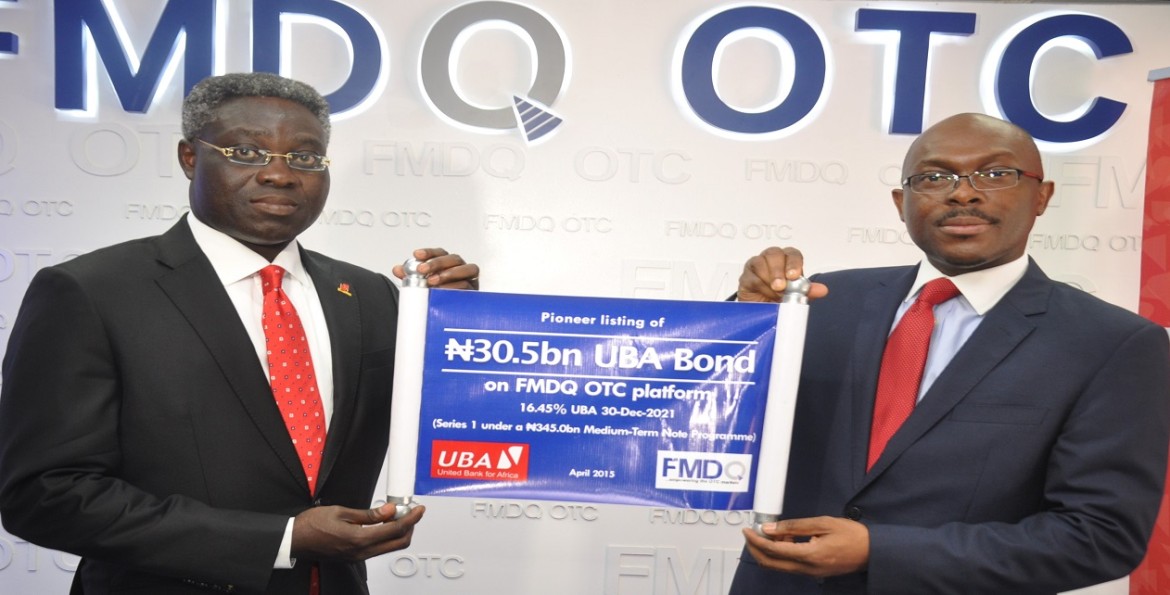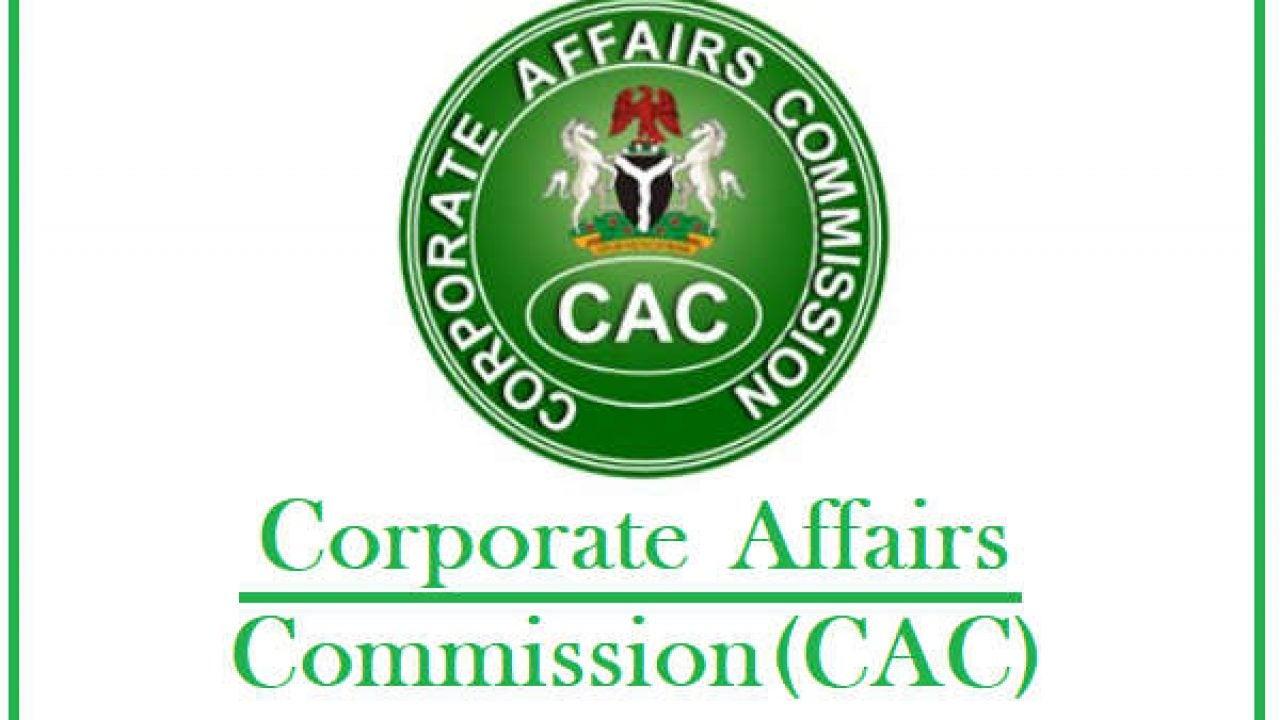In the just concluded week, the OTC FGN bond market witnessed sustained bargain hunting as investors in the fixed income security pounced on instruments worth less than their prices.
This led to the appreciation in bond prices for all the maturities.
For instance, the 20-year, 10.00% FGN JUL 2030 bond appreciated by N0.61 (yield decreased to 15.23%);10-year, 16.39% FGN JAN 2022 paper gained N1.49 (yield fell to 14.81%); the 7 year,16.00% FGN JUN 2019 bond gained N1.15 (yield decrease to 14.93%); while the 5-year, 15.10% FGN APR 2017 paper rose by N0.42 (yield declined to 19.52%).
A report by Cowry Asset Management Limited showed that on the London Stock Exchange, traded FGN Eurobonds also appreciated on resumed bargain hunting activity as the 5-year, 5.13% JUL 12, 2018 bond and the 10-year, 6.38% JUL 12, 2023 bond lost $0.66 (yield fell to 4.26%) and $2.05 (yield fell to 6.40%) respectively.
This week, Debt Management Office will issue federal government bonds (all re- openings) worth N110 billion, viz: 5-year, 14.50% FGN JUL 2021 debt worth N40 billion; 10-year, 12.50% FGN JAN 2026 bond worth N30 billion; and 20-year, 12.40% FGN MAR 2036 paper worth N40 billion.
Analysts at the Cowry Asset Management anticipated that the stop rates would mirror last Primary market auction rates in line with CBN’s drive to keep rates high as incentive to attract Foreign Portfolio Investors.
Improved buying interest were also observed across the Sub-Saharan sovereign (SSA) Eurobonds as a result of appreciating commodity prices with year-to-date return at +7.2 per cent, buoying buy sentiments in emerging markets instruments.
Yields declined on all SSA sovereign bonds save for the South African 2017 which rose 0.5 per cent week-on-week.
Forex Market
The liquidity crunch in the foreign exchange market continued last week as the nation’s currency further depreciated week-on-week.
At the interbank, spot rate hovered between N312/$1 and N317/$1 from Monday to Thursday. The interbank spot rate closed at N332.07/$1 on Friday.
According to analysts at Afrinvest West Africa, compared to the preceding week, the naira/dollar exchange rate was less volatile at the parallel market, trading at N395/$1 all week save for Wednesday and Friday when it traded at N394/$1 and N397/$1 respectively.
Sentiments in the futures FX market also weakened last week as the one-year forward rate depreciated to N349.30/$1 from N345.42/$1 the preceding week.
“We believe the exchange rate will remain pressured in the interim until autonomous players return to the market to relieve the CBN of its role of major dollar supplies at the interbank. We are of the view that the depreciation of the naira, the reforms in the FX market coupled with current attractive yield environment should buoy foreign investor sentiment in Nigerian assets and aid the vital return of foreign capital to the market,” Afrinvest stated.
In view of the current macro-economic challenges in the country, the CBN last week announced that it has granted a one-off forbearance to banks this year to write-off their fully provided for non-performing loans (NPLs) without waiting for the mandatory one year.
The CBN stated that it acknowledged the request by banks to amend the requirements of S.3.21 (a) of the Prudential Guidelines, which mandates banks to retain in their records, fully provided NPLs for a period of one year before they are written off.
“The CBN has no intention of repealing the provision of the above mentioned section of the guidelines. In view of the current macro-economic challenges, however, the CBN hereby grant a one-off forbearance this year 2016 to banks, to write-off fully provided for NPLs without waiting for the mandatory one year,” it stated in circular addressed to all banks.
In a related development, in view of what it described as the observed abuse of access to its Standing Lending Facility (SLF) by banks and other authorised dealers, the CBN last week also announced measures to correct the anomaly.
To this end, it directed all authorised dealers to refrain from accessing the discount window on the settlement date for government securities’ auctions. The securities referred to are CBN bills, Nigerian Treasury Bills and Federal Government of Nigeria bonds. It stressed that any violation of the directive would result in the denial of access to the SLF.
Meanwhile, in a separate circular yesterday, which was in furtherance to its recent directive that banks that act as agents to approved international money transfer operators (IMTO) to sell foreign currency accruing from inward money remittances to licenced Bureau De Change (BDC) operators, the central bank yesterday fixed a maximum limit of $30,000 per week as what banks can sell to the BDCs. Also, in its bid to ensure that all Nigerian customers in the diaspora get their Bank Verification Numbers (BVN), the central bank in another circular, said it has re-opened the scheme. The enrolment for diaspora customers would now run from August 1st to December 31st, 2016.
Money Market
The money market opened last week opened with aggregate system liquidity in negative N75.1billion. Consequently, Open Buy Back (OBB) and overnight rates remained in double digits (18.3 per cent and 19.4 per cent respectively) last Monday as a result of liquidity dynamics. The OBB and overnight however surged to 22.5 per cent and 24.8 per cent on Friday, up three per cent and 4.2 per cent week-on-week as the CBN mopped up N256.4 billion in an OMO auction at marginal rate of 18 per cent. Activities in treasury bills market were mixed. Average rate inched 0.1 per cent, up on Friday to close the week at 17.1 per cent (down 0.3% week-on-week). The auction was five times oversubscribed with bids ranging from 17 per cent to 18 per cent. The stop rate at the auction was 18.0% and as a result all subscriptions were successful.


 Naira4 weeks ago
Naira4 weeks ago
 Billionaire Watch4 weeks ago
Billionaire Watch4 weeks ago


 Naira4 weeks ago
Naira4 weeks ago


 Naira3 weeks ago
Naira3 weeks ago




 Naira3 weeks ago
Naira3 weeks ago




 Naira3 weeks ago
Naira3 weeks ago




 Naira2 weeks ago
Naira2 weeks ago
 Commodities3 weeks ago
Commodities3 weeks ago





















